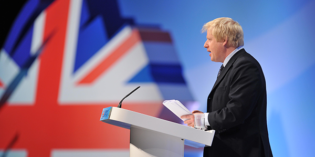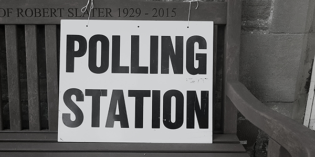Elections and electoral systems

Who wastes their vote?
In their recent study, Corinna Kroeber, Cal Le Gall and Sarah C. Dingler analyse the similarities and differences of voters who do not make their vote count by voting for a party or candidate unlikely to win an election. Studying voting behaviour in three European democracies with different majoritarian electoral systems, namely the United Kingdom, Germany and France, they show that the archetypical ‘ballot wasters’ are the young and men.

A political economy forecast of Ireland’s 2020 general election: government seat losses less than assumed?
Ireland votes in a general election on Saturday, 8 February. Michael S. Lewis-Beck and Stephen Quinlan explain how a new forecast model suggests that Leo Varadkar’s Fine Gael will lose seats, but perhaps fewer than opinion polls currently suggest.

Why did the Conservatives’ large lead in vote shares produce only an 80-seat majority?
Plurality rule voting systems have a well-known tendency to exaggerate the seats of the largest party. A full analysis of the 2019 results remains to be completed, but Tim Smith finds evidence that this time around the Conservatives had a modest 23 seat advantage over Labour in terms of two-party bias. The ‘leader’s bias’ advantage was also much smaller than that which Labour enjoyed in 1997–2005. This may mean that the future boundary reforms to equalise constituency sizes may not be as beneficial as the Conservatives hope.

Voters dislike disproportionality in electoral systems – even when it benefits the party they support
Taking advantage of a uniquely designed survey experiment, Carolina Plescia, André Blais and John Högström investigate the effect of proportionality on voter support for voting rules in four countries, namely Austria, the UK, Ireland and Sweden. They find that voters for both small and large parties dislike disproportionality in electoral systems, with little cross-country variation.

First-past-the-post – normal (disproportionate) service has resumed
In the 2017 election the UK’s ‘first-past-the-post’ electoral system operated quite proportionately, as the Conservatives and Labour level-pegged at high levels of support, and squeezed out support for other parties. In 2019, however, FPTP reverted most of the way back to its historic pattern, awarding a huge ‘leader’s bonus’ of seats to the Conservatives in England and to the SNP in Scotland. Patrick Dunleavy explores why the levels of disproportionality have bounced back towards historic levels.

General election 2019: what are the parties saying about electoral reform?
During this general election campaign, there has been a disappointing lack of focus on what is required to reform democracy in the UK, when the public think it needs a lot of improvement. Ian Simpson from the Electoral Reform Society assesses which reforms have been promised in the parties’ manifestos, and argues that they should be given greater attention, given the lack of public trust in our democratic institutions.

Referendums can be more effective if voters can choose from several options
As the UK prepares for a second general election since the 2016 Brexit referendum, Charlotte C.L. Wagenaar demonstrates how a multi-option referendum could be a valuable tool in future to gauge more nuanced public attitudes on divisive issues. By presenting several alternatives, they can encourage votes for constructive compromises rather than blunt protest votes.

The empty centre: why the Liberal Democrats need to demonstrate competence and unity to win votes
Liberal parties in western democracies which advocate broadly centrist economic policies, such as the Liberal Democrats, have performed badly in some recent elections, even though their policies are often in tune with a large proportion of the electorate. Using survey data Roi Zur finds they have little scope for winning votes by shifting in either direction on the left-right spectrum. Instead they need to demonstrate they are a credible and competent governing party, able to prevent Brexit, and are not just expressing their opposition to it.




 Democratic Audit's core funding is provided by the Joseph Rowntree Charitable Trust. Additional funding is provided by the London School of Economics.
Democratic Audit's core funding is provided by the Joseph Rowntree Charitable Trust. Additional funding is provided by the London School of Economics.